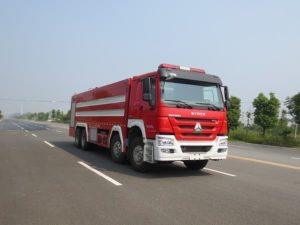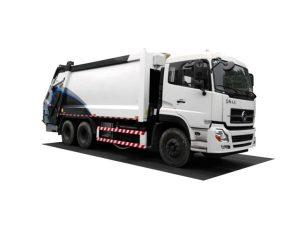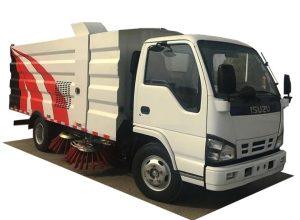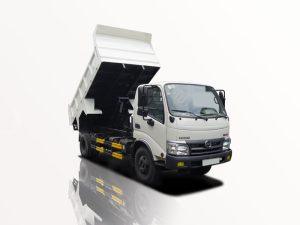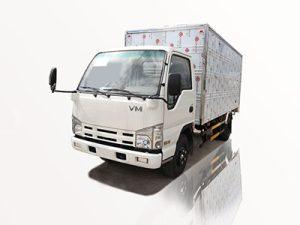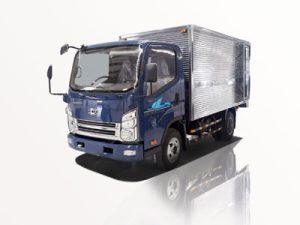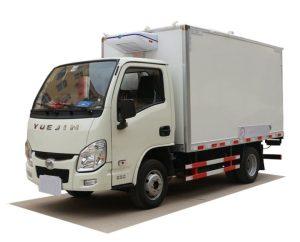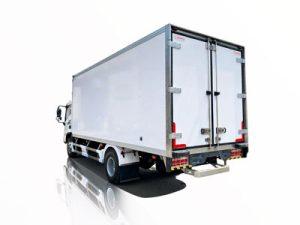Monday to Saturday - 8:00 -17:30
Ultimate Guide to 50,000 lb Winches: Powering Your Heavy-Duty Lifting Needs
When it comes to heavy lifting and towing, a 50,000 lb winch is an invaluable tool. Ideal for industrial applications, off-roading, and recovery operations, these winches provide the muscle needed to handle rugged tasks with ease. This article dives deep into the world of 50,000 lb winches, exploring their features, usage, and how to choose the right one for your needs.
Understanding 50,000 lb Winches
What is a Winch?
A winch is a mechanical device used to wind and unwind rope or cable, primarily used for exerting force to lift or pull heavy objects. Winches are essential in various fields, including construction, towing, and outdoor adventure.
The Importance of Capacity
Capacity refers to the maximum weight a winch can handle safely. A 50,000 lb winch is robust enough to manage substantial loads, making it a perfect choice for professionals dealing with heavy machinery, vehicles, or equipment.
How Winches Work
Winches typically operate using a motor which drives a spool around which the rope or cable is wound. By either using electric or hydraulic power, winches can exert a great amount of force enabling the lifting or pulling of heavy loads.
Types of 50,000 lb Winches
Electric Winches
Electric winches are powered by a battery or an external electrical source. They are easier to operate, making them ideal for off-road adventures and light construction projects.
Pros of Electric Winches
- Quieter operation compared to hydraulic winches
- Easy to install and use
- Less maintenance required
Cons of Electric Winches
- Dependent on battery life
- Lesser pulling power in certain applications
Hydraulic Winches
Hydraulic winches use hydraulic power to work ropes and cables. They are generally more powerful and suitable for continuous use in heavy-duty tasks.
Pros of Hydraulic Winches
- Greater pulling capacity
- Higher durability for long-term use
- Less strain on the power source
Cons of Hydraulic Winches
- Costlier compared to electric winches
- Maintenance can be more complex
Applications of 50,000 lb Winches
Heavy Machinery Recovery
In industries where heavy machinery is prevalent, a 50,000 lb winch is essential for safely recovering and towing equipment.
Off-Road Recovery
For off-road enthusiasts, these winches offer the strength needed to pull vehicles out of mud, snow, or any challenging scenario.
Construction and Road Work
Construction sites often demand the movement of heavy materials, making a 50,000 lb winch indispensable for lifting tasks.
Features to Look for in a 50,000 lb Winch
Motor Type
Consider whether an electric or hydraulic motor best suits your needs based on the applications you’ll use the winch for.
Gear Ratio
The gear ratio affects the speed at which the winch can pull in or release the cable. Higher ratios provide faster operations.
Control Options
Look for winches that offer multiple control options, such as remote and manual controls, to suit various scenarios.
How to Choose the Right 50,000 lb Winch
Assess Your Needs
Evaluate the tasks you’ll be using the winch for, including weight limits, frequency of use, and environmental conditions.
Research Brands
Select well-reviewed and reputable brands that have proven their reliability over time. Thorough research can prevent costly mistakes.
Consider Installation and Maintenance
Understanding how to install and maintain your winch is crucial for long-lasting performance.
Practical Tips for Using a 50,000 lb Winch
Regular Safety Checks
Before every use, inspect your winch, looking for any wear or damage to components. This helps maintain safety and functionality.
Know Your Limitations
Always operate within the winch’s rated capacity to prevent failure and potential accidents.
Use Proper Rigging Techniques
Employ appropriate rigging techniques to ensure safe lifting or pulling. This includes using the right types and lengths of slings.
Maintenance of 50,000 lb Winches
Routine Maintenance Checklist
| Task | Frequency |
|---|---|
| Inspect Cable/Rope | Every use |
| Lubricate Moving Parts | Monthly |
| Check Electrical Connections | Every three months |
| Inspect Motor for Damage | Annually |
Cleaning the Winch
Keep the winch clean by regularly removing dirt and debris from the mechanism, ensuring it operates smoothly.
Cost Considerations for 50,000 lb Winches
Pricing Overview
The price of a 50,000 lb winch can vary based on its type, mechanism, and brand. Generally, you can expect to pay anywhere from $2,000 to $10,000 or more for high-quality winches.
Value for Money
Always consider the value of the winch concerning its features, durability, and your specific needs. Investing in a reliable winch can save costs in the long run.
FAQs
What is the average lifespan of a 50,000 lb winch?
The lifespan depends on usage and maintenance, but a well-maintained winch can last several years, often exceeding a decade.
Can I install a 50,000 lb winch by myself?
Yes, with the right tools and knowledge, installing a winch can be done at home. However, professional installation is recommended for more complex systems.
How do I determine the right cable length for my winch?
It’s typically advised to have at least 1.5 times the length of the height you need to lift or pull, ensuring ample cable for safe operations.
Are there winches with wireless controls?
Yes, many modern winches come with wireless remote controls that offer convenience and safety during operations.
What can I do if my winch gets stuck?
If your winch gets stuck, first stop all operations. Assess the situation for obstructions, then use a recovery vehicle or additional manpower to release it safely.
Is it safe to use a 50,000 lb winch with a standard vehicle?
Using a winch of this capacity with a standard vehicle may not be safe or practical. Always match the winch capacity with the vehicle’s towing or recovery ability.


